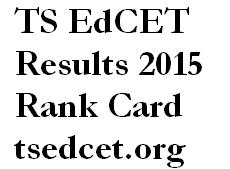Delhi Chief Minister Arvind Kejriwal on Tuesday announced that the government’s Higher Education and Skill Education Guarantee Scheme will be named after former President A P J Abdul Kalam, who passed away in Shillong on Monday.
The scheme, under which the government will stand guarantee for student loans of up to Rs 10 lakh, will be named ‘Dr A P J Abdul Kalam Higher Education and Skill Education Guarantee Scheme’.
Paying homage to Kalam, the CM said that he was known for his extraordinary teachings for the youth and for school children, and he encouraged them to make it their mission to take India ahead.
Addressing a gathering of teachers, educationists and government officers at the Delhi secretariat on July 2, Kalam had said that 25 per cent of school time, for students between class 9 to class 12, should be devoted to skill development.
“That means, every year we get a skilled bank of millions of children. In such a situation, the role played by educationists has to be unique so that it will help upgrade the skill of the candidate for making him or her a member of the knowledge society,” Kalam had said.
Meanwhile, the special session of the Delhi Assembly, called by the AAP government to discuss the issue of women’s safety, was adjourned till August 3 after legislators paid tribute to Kalam, who passed away on Monday.
In a mark of respect for the departed leader, the Delhi government also instructed its officials to remove all its advertisements from outdoor sites.
A senior government official said that the outdoor advertisements would be removed by Tuesday night and they would not be displayed till the completion of the seven-day mourning period.
After the assembly session was adjourned, Kejriwal, Deputy Chief Minister Manish Sisodia and Assembly Speaker Ram Niwas Goel rushed to Kalam’s residence at 10, Rajaji Marg, to pay their respects to the late President.
http://indianexpress.com/article/cities/delhi/skill-education-scheme-for-students-named-after-apj-abdul-kalam
The scheme, under which the government will stand guarantee for student loans of up to Rs 10 lakh, will be named ‘Dr A P J Abdul Kalam Higher Education and Skill Education Guarantee Scheme’.
Paying homage to Kalam, the CM said that he was known for his extraordinary teachings for the youth and for school children, and he encouraged them to make it their mission to take India ahead.
Addressing a gathering of teachers, educationists and government officers at the Delhi secretariat on July 2, Kalam had said that 25 per cent of school time, for students between class 9 to class 12, should be devoted to skill development.
“That means, every year we get a skilled bank of millions of children. In such a situation, the role played by educationists has to be unique so that it will help upgrade the skill of the candidate for making him or her a member of the knowledge society,” Kalam had said.
Meanwhile, the special session of the Delhi Assembly, called by the AAP government to discuss the issue of women’s safety, was adjourned till August 3 after legislators paid tribute to Kalam, who passed away on Monday.
In a mark of respect for the departed leader, the Delhi government also instructed its officials to remove all its advertisements from outdoor sites.
A senior government official said that the outdoor advertisements would be removed by Tuesday night and they would not be displayed till the completion of the seven-day mourning period.
After the assembly session was adjourned, Kejriwal, Deputy Chief Minister Manish Sisodia and Assembly Speaker Ram Niwas Goel rushed to Kalam’s residence at 10, Rajaji Marg, to pay their respects to the late President.
http://indianexpress.com/article/cities/delhi/skill-education-scheme-for-students-named-after-apj-abdul-kalam

































